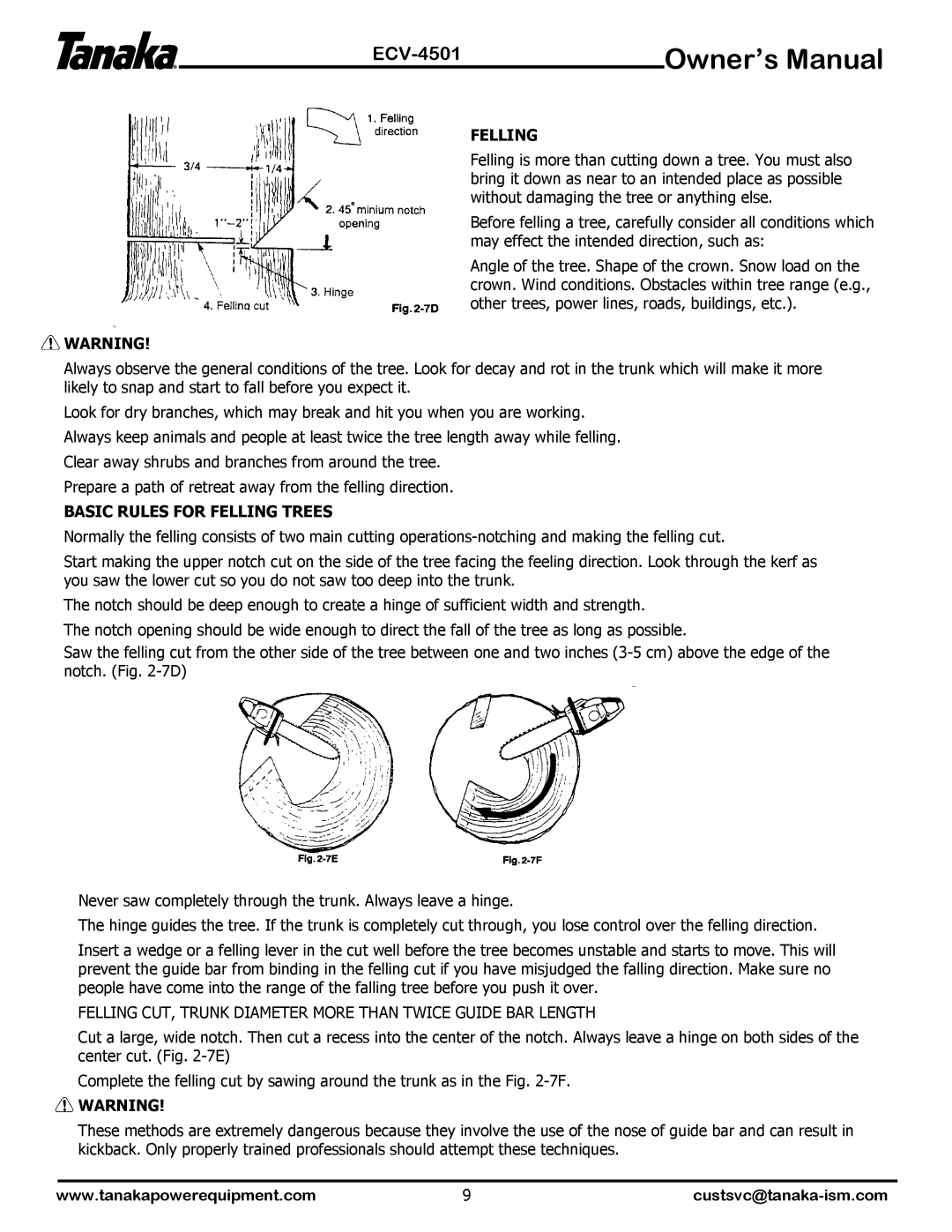ECV-4501 specifications
The Tanaka ECV-4501 is a sophisticated piece of equipment designed to meet the demands of modern industrial applications, particularly in construction and heavy machinery sectors. Known for its reliability and versatile functionality, the ECV-4501 stands out due to its innovative features and cutting-edge technologies.One of the main features of the Tanaka ECV-4501 is its powerful engine. Equipped with a high-performance 4-stroke engine, it delivers outstanding torque and efficiency, allowing for rapid completion of tasks without compromising on power. This robust engine is complemented by an advanced cooling system that ensures consistent performance even in the most demanding environments.
The ECV-4501 is built with user-friendly controls that improve operator efficiency. The ergonomic design includes a well-structured dashboard that displays essential information at a glance, allowing operators to monitor the machine’s status easily. The intuitive control panel enhances usability, making it suitable for both experienced operators and newcomers.
In terms of safety features, the Tanaka ECV-4501 incorporates multiple systems designed to protect the operator and the machinery. Safety guards are strategically placed to minimize risks during operation, while automatic shut-off systems are in place to prevent overheating and mechanical failures. These features contribute to a work environment that prioritizes safety and reliability.
The Tanaka ECV-4501 also excels in its technological integration. It is equipped with advanced sensors and diagnostics tools that allow for real-time monitoring of the machine’s performance. This connectivity not only assists in predictive maintenance but also helps in identifying potential issues before they lead to downtime.
Another notable characteristic of the ECV-4501 is its compact design. Unlike many machines in its class, the ECV-4501 can easily maneuver in tight spaces, making it ideal for urban construction sites and other confined environments. Its lightweight chassis does not sacrifice durability, as it is constructed with high-grade materials that withstand the rigors of daily use.
In summary, the Tanaka ECV-4501 is a remarkable blend of power, efficiency, and innovation. Featuring a robust engine, user-friendly controls, comprehensive safety systems, and advanced technology integration, it is designed to meet the high standards of modern industrial demands. Whether for large-scale projects or smaller tasks, the ECV-4501 is a reliable choice for professionals seeking a versatile and effective machine.

